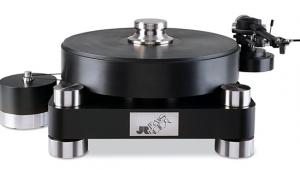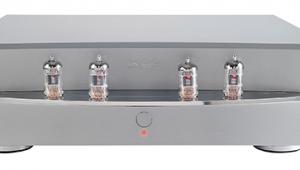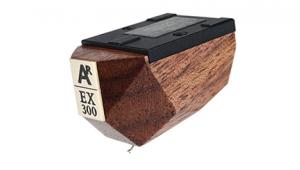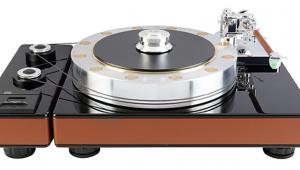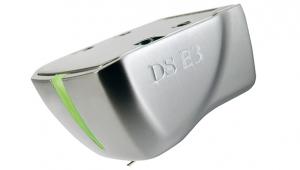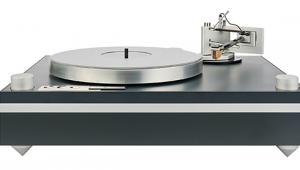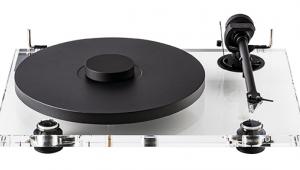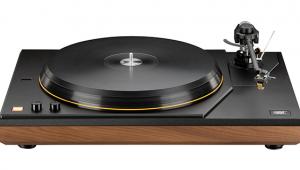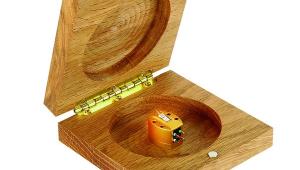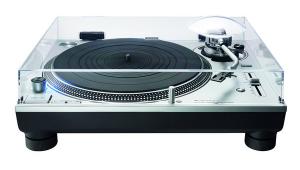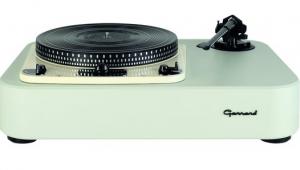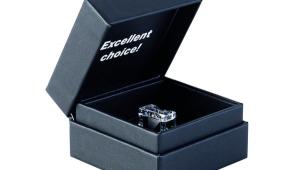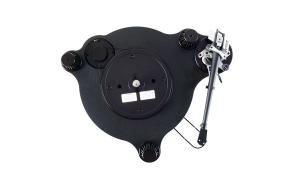Pro-Ject Audio Automat A1 Turntable Package Page 2
![]() Place Your Orders
Place Your Orders
Smiling at a range of decks named after a much-missed fast-food American dining concept (and a short-lived London eatery), I believe the Pro-Ject Automat A1 to be the fastest I have ever had a turntable up-and-running.
I plugged it straight into a system likely to have £400 or so allocated to a deck, with a £1000 integrated amp and £600 speakers, for a total value below £2000. Aside from the Ground It platform – unfortunately necessary in my room – no tweaks or accessories were applied.
All remarks, then, refer to the A1 via its internal phono stage, but without the Clamp It (which I recommend). Playing it through even affordable phono stages, like MoFi's £499 UltraPhono [HFN Mar '20], provides clearly audible benefits but that defeats the object. Believe me: the stock set-up will satisfy any newbie... and quite a few jaded veterans.
Given the nostalgia flooding over me, I dug out the first LP I ever played on my Dual 1019. My original US mono Meet The Beatles [Capitol T2047] is near-mint thanks to my father instilling in me how to handle records, and its Yankee mix is punchier and brighter than the UK original – neither better nor worse, just different. Via Pro-Ject's A1, it was exactly the kind of sound ideal for seducing a novice vinyl user or first-time hi-fi owner, because the Automat series' debutante model truly sparkles.
However, this isn't quite the same as 'bright', that edgy, cutting, unpleasant sound which marred early solid-state amps and certain 1960s Japanese loudspeakers. The A1 may never be accused of sounding silky, but neither is it as aggressive as entry-level products deliberately voiced to impress the neophyte by being the slightly louder of two challengers in an A/B demo. This is more vibrant and inviting, most notable on George Harrison's guitar leads, or Ringo's hi-hat and cymbals.
Stability and solidity were the other early impressions, this mono musical event positioned perfectly dead-centre and with a believable roundness to the sound space. The airiness made it easy to hear each voice amidst the harmonies, especially on 'This Boy'. The attack was just what I recall of Ortofon's 'Concorde-nose' MM cartridges, clean and crisp, though slightly coarse compared to the 2Ms.
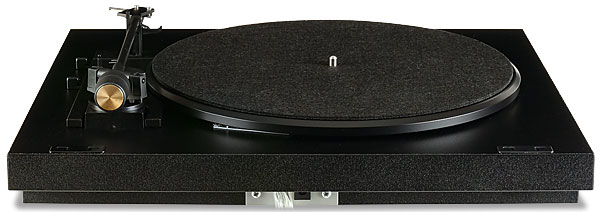
Sentiment now satisfied, and moving to stereo, I put on Jackson Browne's latest, Downhill From Everywhere [Inside Recordings INR1126], a particularly fine-sounding album, with ten tracks spread over two LPs. It has no audiophile pretensions, but the warmth and clarity of the vocals and the percussion make this a sonic stand-out. What surprised me was the weight the A1 was able to deliver, especially on the rhythm section of the country rocker 'My Cleveland Heart'.
Exciting Times
Notwithstanding any reservations I (or, for that matter, you) might have about the finesse available from so cost-effective a package, the A1 reproduced this track with precisely the refinement needed to recall the Left Coast sound of Browne's debut, which predates this album by 50 years. It also features growly, effects-laden guitar work, a combination of textures that revealed the A1's ability to deal with contrasts. What it lacked in absolute richness, especially of the sort associated with classic MC cartridges, was balanced by that inescapable sense of excitement.
It was the new 45rpm transfer of Joe Jackson's eclectic, originally-recorded-in-digital Body And Soul [Intervention IR-030] that exposed the aforementioned tonearm travel which assumes a 7in record is on the platter when playing at 45rpm. Amused rather than irritated, I lowered the arm manually and was rewarded with a lushness I simply did not anticipate.
This 1984 release, regardless of its PCM origins, was a taste of big band/supper club sophistication for an audience primarily assaulted by the artifice-driven pop of the time. Joe Jackson, like Bryan Ferry, Donald Fagen and a handful of others filed under 'rock', has a deep appreciation of the music of previous generations, with leanings toward jazz, Latin-flavoured material and the hippest of bebop, so if anything was going to show the A1's limitations, it was Body And Soul.
Right On Cue
Boy, was I in for a shock. The trumpet had just the right amount of brassy punch, the saxophone the right reediness, but above all, the piano defied anyone to scream 'digital!'. There was top-to-bottom coherence, a convincing sense of the massive hall in which this was recorded, and – above all – a total absence of lo-fi brashness.
It's not just as a champion of automation for which the A1 deserves recognition: it also proves that a sub-£400 all-in-one package can truly satisfy.
Hi-Fi News Verdict
To appreciate the Pro-Ject Automat A1, you must think back to when you bought your first deck. This is, in spirit and intent, truly a Dual CS-505 for the 21st century – even its price. Admittedly, it doesn't encourage upgrading without some lateral thinking, but, man-oh-man, it sounds swell right out of the box. Lively and inviting, the A1 is a fine introduction to genuine hi-fi – and without the masochism.


